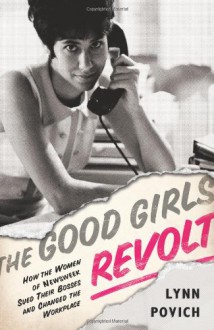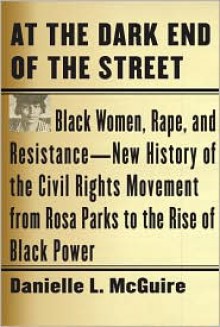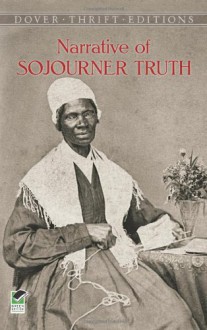This is my first Top Ten Tuesday!
I've always been a bit of a history nerd, but as I became comfortable with calling myself a feminist, I realized I didn't know nearly enough about women in history. Or women's accomplishments in general. Or about people who don't identify as women or men. Or that people even existed that didn't identify as women or men. Or how bad the struggle still is all around the world.
As I delved into feminist ideology, I also found the herstory genre. Here are my top ten herstory books for new (or any) feminists!
- The Good Girls Revolt: How the Women of Newsweek Sued their Bosses and Changed the Workplace - Lynn Povich This was a great one for me becaue I have always thought of myself as a good girl too. I don't want anything special, just not to be held back by someone else's antiquated ideas about what I'm capable of. These girls loved their jobs and where they were working, they just wanted to be treated fairly and they were willing to go after that together. Loved it!
- At the Dark End of the Street: Black Women, Rape, and Resistance--A New History of the Civil Rights Movement from Rosa Parks to the Rise of Black Power - Danielle L. McGuire I had learned a lot of the things covered in this book in Black History Month specials in middle and elementary school, but history just wasn't real to me back then. Of course, all these stories also get sanitized for children in schools so it's never as poignant as it should be. By the time we get to high school, we can recite the key points but it almost feels too late to actually digest and understand it. Then I read this book and it was like I heard it for the first time. More than the key points, this is a peak behind the curtain. It all finally made sense in a way that I never thought it could.
- The Birth of the Pill: How Four Crusaders Reinvented Sex and Launched a Revolution - Jonathan Eig I'd had no idea how bad it was before the mighty pill. I took it for granted. That'll never happen again. There are just too many things that we don't have to deal with or worry about or can take a stand against now that I can't even begin to explain the impact that little pill has made. Reading about it coming to fruition was fascinating.
- I Am Malala: The Girl Who Stood Up for Education and Was Shot by the Taliban - Christina Lamb,Malala Yousafzai I have been in awe of Malala since I first heard her story. She is an amazing young woman who has already done more with her life than most. What do you do after being awarded a Nobel Peace Prize? I can't wait to find out.
- Narrative of Sojourner Truth (Dover Thrift Editions) - Sojourner Truth,Olive Gilbert I had heard the name of Sojourner Truth countless times. I knew it from those same February showcases mentioned above. I just never knew much about her. It wasn't until I listened to one of the many famous actresses recite her "Ain't I a Woman?" speech that I realized I had to read her narrative. I love that speech. You can find it here, read by my favorite of the actresses who has done so.
- Unorthodox: The Scandalous Rejection of My Hasidic Roots - Deborah Feldman I never knew much about Hasidic Jews but this had sounded interesting when I first saw it and it was. I know it isn't the picture of modern Jewish life and probably doesn't paint the kindest of pictures about being a Hasidic Jew, but it was still interesting to read about a world that was so foreign and yet not so far from where I am.
- Fragments Of Gender - Lisa Lees This is a collection of essays that explore life along the gender spectrum, rather than stuck on one side of it or the other. I knew relatively little about transgender and non-binary gendered people, so this was a revelation at just the right time. Don't get me wrong, I still don't have all the answers and make faux pas around people about this sort of thing, but I know more than the average cisgendered person, I think. I hope. I'm still learning, but as I said at the beginning, this was a great place to start. It gave me that first idea about what people went through and that was invaluable.
- Mighty Be Our Powers: How Sisterhood, Prayer, and Sex Changed a Nation at War - Leymah Gbowee Another Nobel Laureate, Gbowee has accomplished great feats by what seems like sheer will. She is amazing beyond belief and hearing her story was remarkable. She just understands so much about everything, especially healing. If you have ever doubted what women could be capable of if we just stuck together, pick up this book!
- Headstrong: 52 Women Who Changed Science-and the World - Rachel Swaby I LOVE a good anthology! I've even talked about it a few Femme Fridays ago. The thing about these anthologies is that they prove that while we may not have been prevalent, we have always been present in STEM and war and other places some say we don't belong. This book has one woman for every week to learn about that did great things in science. I tore through it much faster than that, though. It's one of my favorites.
Ok, I only had nine of my herstory books that I could honestly put on this list. The others that are on my shelf are good, but I don't feel like they exemplify parts of the experience quite the same way these do. While I strive for diversity in my reading, I also realized that I don't reach all groups.
I had hoped to read Girls Think of Everything: Stories of Ingenious Inventions by Women by the time of this post, but it wasn't meant to be. I connected it anyway because what I saw in the table of contents led me to believe that I'll wish I had when I do get to read it.
For more Top Ten Tuesday posts, check out the originator The Broke and the Bookish!

 Log in with Facebook
Log in with Facebook 















